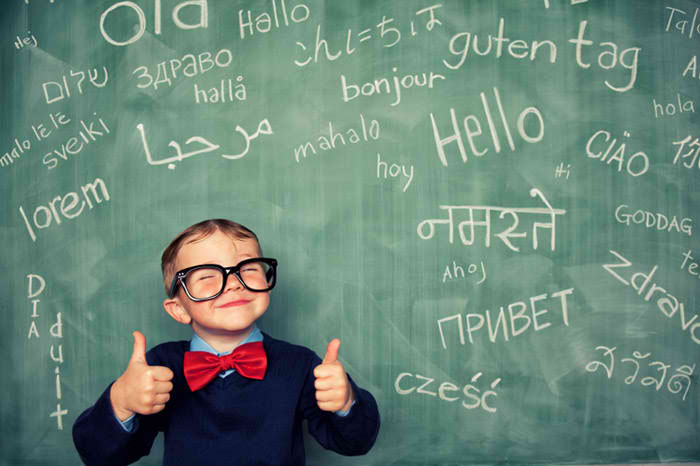The benefits of bilingual education are subjective.
An advantage to some can be the opposite to others. Nevertheless, bilingual education has objective pros and cons.
Pros of Bilingual Education
- One Day, It Will Be A Necessary Skill
As the world’s minority language speaking populations continue to rise, children who are taught to speak multiple languages will become a hot commodity on the job market. A child’s mind is much more open to learning new concepts than their adult counterparts. Increased language flexibility is a wonderful skill to be able to put on a resume and will open up a far larger job market for those who are educated bilingually.
- Learning A Second Language Makes It Easier To Learn A Third
Becoming bilingual increases a person’s ability to focus on learning new tasks and also triggers increased concentration. Multitasking also becomes much simpler for those who are bilingual.
The area of the brain that is responsible for learning new materials and encouraging spatial growth is further stimulated with bilingual education. Children who are able to communicate fluently with a variety of cultures and peoples are the ones who will rise to the top in a world that is becoming more far more global that anyone could have anticipated.
- There Are Multiple Personality Benefits
Bilingual education is a great way to enhance your child’s overall working memory. Studies have shown that children who show the ability to handle learning a second language also increase their ability to process new sounds, especially those who use separate languages on a regular basis.
Their overall aggression level is also reduced and their ability to reason logically experiences a significant boost. They externalize their anger at a much less frequent rate and less likely to get into arguments with their peers.
- Leads To A More Well Rounded Child
A child who is able to grasp a second or third language opens up a much larger world to themselves and is much more likely to be cultured and worldly. They are able to study abroad and gain more from the experience than those who study abroad without being able to speak the predominant language of the country.
They will have a decided advantage over children who do not speak more than one language. Learning a second language provides a valuable gateway to positive interactions with other races, which leads to personal growth and more rapid development of other important social skills.
Cons of Bilingual Education
- Bilingual Education Is Quite Costly
Schools all across the country are struggling to keep their foreign language programs funded as is. Running a dominant language program is far cheaper than attempting to educate a minority language student. Spending money on bilingual education programs takes valuable funding away from programs that schools are already forced to cut back on. Physical education and music related programs are consistently falling by the wayside, in favor of foreign language programs that are not proven to be successful. For this reason, many schools have elected to stick with their current dominant language programs. - Foreign Language Students Do Not Assimilate As Easily
Chief among these sacrifices is their dominant language and culture. When bilingual education is offered, it simply serves to widen the cultural gap, as opposed to bridging it. It also becomes more difficult for the student to experience success in other school subjects, such as math or science.
Those who speak a minority language should be able to learn English, while also holding onto their native tongue and their own cultural traditions. Learning a second language should never be an either/or proposition.
- Reduces Focus on A Career
When a child is made to spend a great deal of time learning a second language, this can hinder their ability to develop the skills that they need in other areas. Specializing in one particular area is considered to stunt the child’s overall development and can actually lead to a lack of well-rounded learning.
Teaching a child to be bilingual is an extremely time consuming pursuit and one that can cause a great deal of frustration for both the teacher and the student alike. If a child becomes frustrated with learning, this attitude can spill over into how they relate to other subjects.
- Lack of Qualified Teachers
One of the main issues that continues to arise in the world of bilingual education is the severe lack of qualified teachers who are able to handle the subject. Quality bilingual education requires a firm, patient, expert teacher who has the time on their hands to take care of all the issues that arise.
Unfortunately, these teachers are in very short supply. Many of them are already very busy teaching their normal subjects and do not have the time necessary to add teaching a second language to their already busy schedule.
